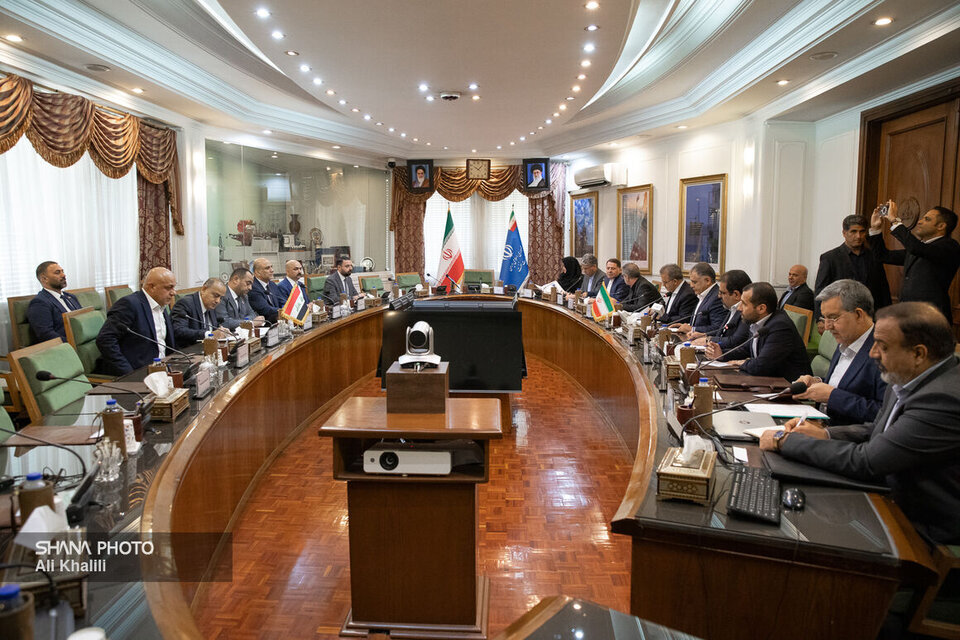Iran, Iraq push to resolve gas export disputes, outstanding payments

TEHRAN - Iran’s Oil Minister Mohsen Paknejad said on Saturday that Tehran and Baghdad are moving toward settling disputes over gas export volumes and unpaid dues, expressing optimism that both issues would soon be resolved.
Speaking after a meeting with Iraqi Electricity Minister Ziad Ali Fadhil in Tehran, Paknejad told reporters that the two sides reached a consensus on the volume of gas exports to Iraq through the Shalamcheh and Naft Shahr border points.
“There were discussions regarding the quantity of gas exports, and fortunately, we reached a mutual understanding,” Paknejad said, according to the Oil Ministry’s news service, Shana.
He added that “positive and constructive” results were also achieved regarding Iraq’s outstanding payments for Iranian gas supplies. “God willing, we will soon witness the settlement of both the export volume and the payment issues,” he noted.
Paknejad said the meeting was held in a positive atmosphere and extended his gratitude to the Iraqi delegation for their hospitality toward Iranian pilgrims, particularly during the annual Arbaeen pilgrimage.
Iraq’s electricity minister, for his part, pledged to ensure the best possible conditions for hosting Iranian pilgrims during Arbaeen.
Iran has been a major supplier of natural gas to Iraq under contracts signed since June 2013, delivering gas primarily to power plants in Baghdad and Basra.
However, Iraq’s persistent delays in payments—reported to be in the billions of dollars—triggered supply reductions. In December 2020, Iran slashed gas exports dramatically from 50 mcm/d to as low as 5.0 mcm/d due to unpaid debt, causing widespread electricity shortages in Iraq that cut output by thousands of megawatts.
By mid‑2022, after months of negotiations, Iraq paid Iran around $1.6 billion in arrears, and Iran subsequently saw export volumes rise by 25 percent, along with a 90 percent increase in hard-currency receipts.
Still, financing difficulties remain. Although the U.S. sanctions regime no longer formally bars gas and electricity trade—following a waiver revoked in March 2024—the practicalities of payment transfers pose challenges. Iraq has argued that funds are stuck in domestic banks due to sanctions-related banking restrictions, even while claiming that the money is ready to be released. Iran has maintained it continues exports, albeit sometimes modified due to payment disputes or operational factors.
In 2025, Iran’s gas exports totaled nearly 9.0 billion cubic meters—down about 30 percent from the previous year—with Iraq and Turkey accounting for approximately 87 percent of those exports.
With the latest diplomatic momentum described by Paknejad, both sides appear poised to resolve not only the dispute over delivery volumes—but also to settle outstanding payments that have weighed on bilateral energy cooperation.
EF/MA
Leave a Comment